The development of Web3 is currently at a critical turning point, and the industry urgently needs to attract new users to promote the real large-scale adoption of Web3. However, large-scale adoption faces core challenges: data leakage risks, security vulnerabilities of centralized storage, cross-system interoperability barriers, and inefficient service access. How can we truly break through these bottlenecks? Mandala Chain, a Layer1 blockchain built on the Polkadot Substrate framework, is completely changing the industry's operating model through innovative technical architecture and solutions.
As a vibrant emerging market, Indonesia has shown great potential to attract the next 100 million Web3 users. Mandala Chain chose Indonesia as its first landing scenario, committed to fully on-chain local government and enterprise applications, creating a one-stop platform connecting official agencies, enterprises and the public, building a secure and reliable digital identity infrastructure, and fundamentally solving the existing data sharing and infrastructure pain points.
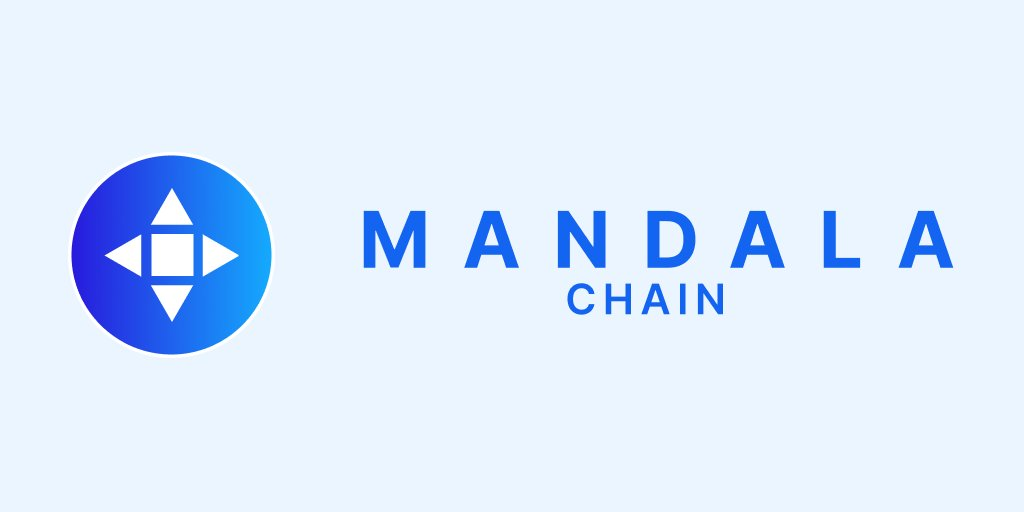
From financial banking to medical data, from smart cities to digital identities, from intellectual property to supply chain management - Mandala Chain has demonstrated strong application value in many fields and successfully built a bridge between traditional Web2 services and the Web3 ecosystem. What are the advantages of this platform that is committed to introducing 100 million users to Web3? Why did it choose Indonesia as the starting point of its vision? What practical use cases have been found in the Indonesian government and enterprises? This article will give you a comprehensive analysis.
Mandala's development and achievements
Mandala Chain is a network designed to connect emerging and global blockchain markets, with Indonesia as the first use case. In January 2025, the testnet of Mandala Chain was officially launched. This is an Ethereum-compatible blockchain within the Polkadot ecosystem, allowing users to easily manage accounts using MetaMask and other Ethereum tools, and supporting Polkadot.js applications for seamless integration. The latest news shows that the Mandala Chain mainnet is expected to be launched in the second quarter of 2025.
So far, Mandala Chain has achieved remarkable achievements: obtaining US$1 million in seed round financing; cooperating with more than 90 banks to store data and transactions on the chain; adding more than 50,000 wallets and moving towards the goal of 900,000 wallets; cooperating with more than 20 new hospitals to ensure that medical data and insurance are on the chain; cooperating with major Indonesian gold companies to explore the tokenization of more than US$500 million in gold reserves; cooperating with Indonesia's largest data infrastructure provider to explore various blockchain applications; cooperating with Indonesia's top-level domain name registrar to put digital identity on the chain; launching Dahatu to help enterprises move from Web2 to Web3, etc.
Why choose Indonesia?
As the world's fourth most populous country, Indonesia has a population of over 281 million and its Internet is developing rapidly. By 2024, Indonesia's Internet users will reach 215 million, of which nearly 70% are young people, and the overall Internet penetration rate will reach 79.5%. Such a large and young user group provides a solid foundation for the rise of Indonesia's Web3 industry.
According to the Chainalysis 2024 Global Cryptocurrency Adoption Index Report, Indonesia ranks third in the world and ranks first in the world in both "DeFi Value Received" and "Retail DeFi Value Received". This not only shows Indonesia's extensive participation in DeFi at the institutional level, but also reflects the high acceptance and daily use of decentralized finance by ordinary people. At the same time, Indonesia's market share in DEX and DeFi far exceeds the global average, with a year-on-year growth rate of nearly 200%, showing the high activity and strong development momentum of the Web3 market.
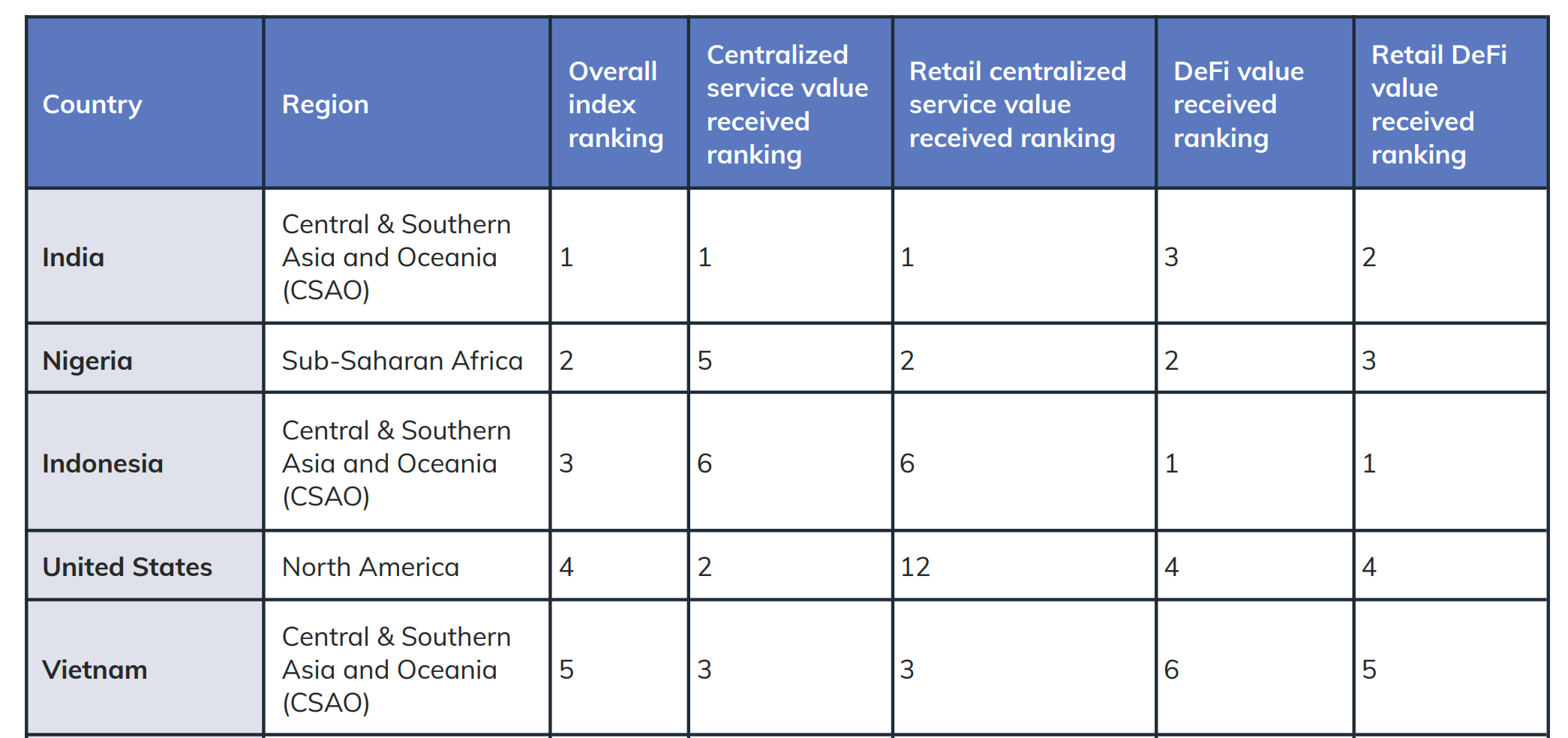
The Indonesian government mentioned in its development plan "Golden Vision 2045 Indonesia" that the digital economy will be an important engine for future growth, promoting innovation in the fields of Internet technology, e-commerce, and financial technology. At present, the Indonesian government has taken some measures to legalize the use of cryptocurrencies, regulate cryptocurrencies through CoFTRA (Commodity Futures Trading Regulatory Authority), and provide certain policy support for the application of blockchain technology.
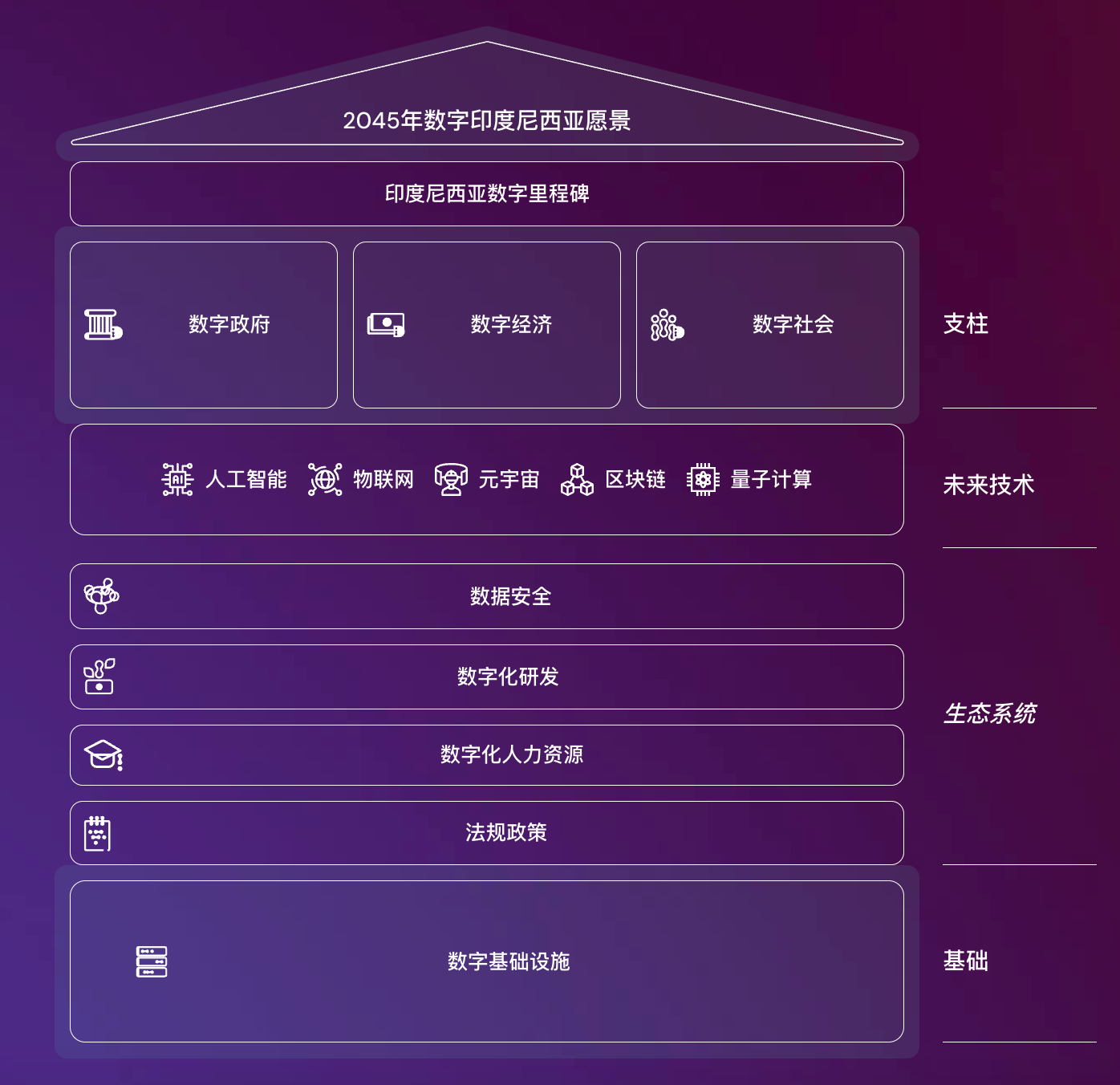
Why Polkadot?
Mandala Chain chose Polkadot mainly based on its three major technical advantages:
Async Banking: This feature reduces the block time from 12 seconds to 6 seconds, improves transaction throughput, supports parallel transaction verification, and stores more data in each block, significantly improving network efficiency.
Agile Coretime: This feature allows dynamic allocation of core resources for shorter periods of time through on-chain purchases or secondary markets. This model enables flexible, on-demand access to network computing resources, allowing Mandala Chain to scale more economically and conveniently.
Elastic expansion: Mandala Chain can expand computing power as needed, providing a foundation for services for hundreds of millions of users in the future.
With the launch of Polkadot 2.0, Mandala Chain will gain stronger technical support, especially in terms of block space management, forkless upgrades, and flexible governance mechanisms. Through Polkadot's parallel chain architecture and XCM cross-chain messaging protocol, Mandala Chain can interact seamlessly with other Polkadot-based networks, further enhancing the platform's interoperability.
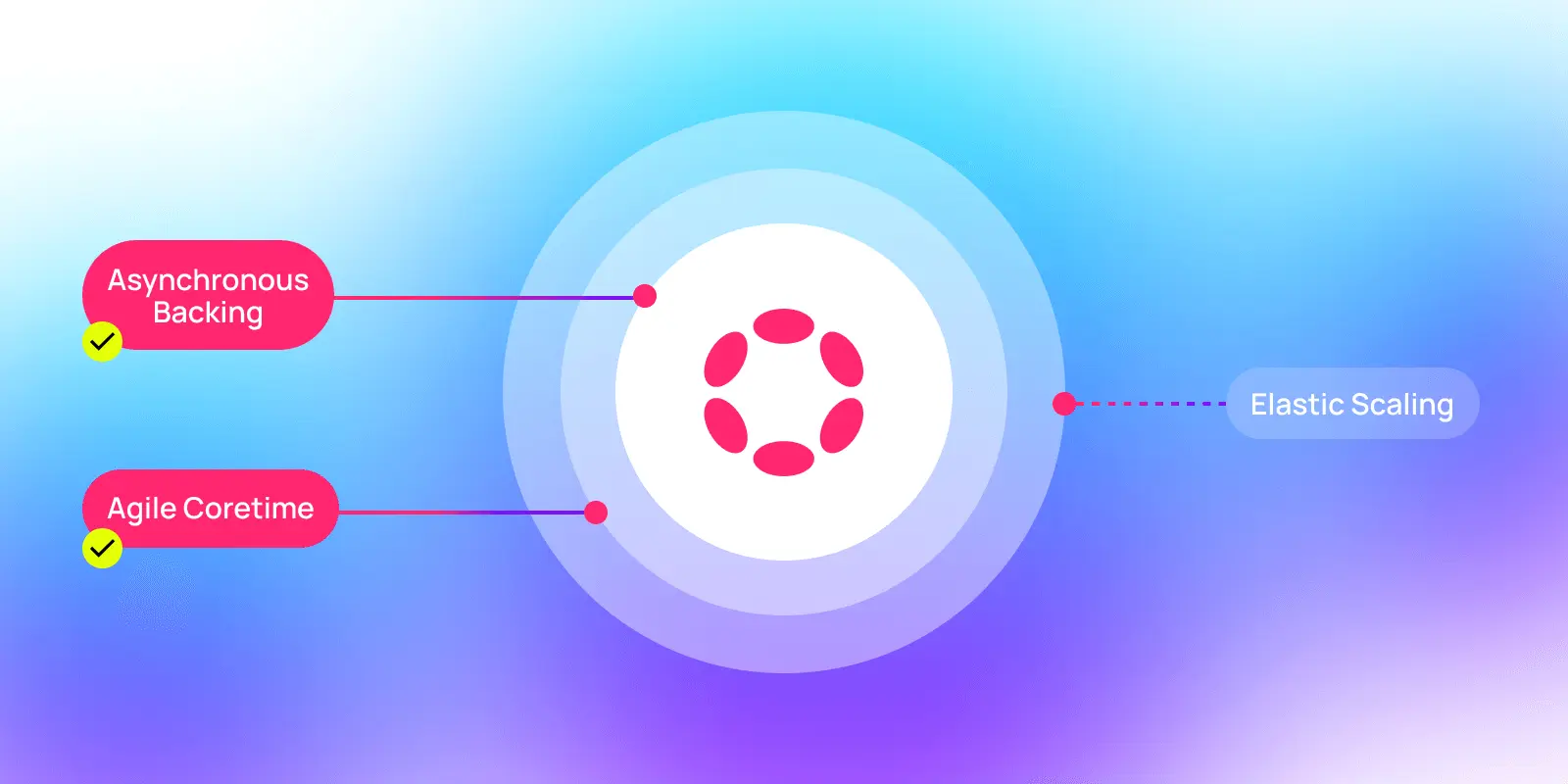
Mandala Chain’s technical advantages
A hybrid blockchain that focuses on privacy and security
Mandala Chain is a hybrid Layer 1 blockchain that focuses on the security and privacy protection of data storage and transmission. It is built on the Substrate framework and provides a modular architecture to ensure that users' data is protected in the face of data leaks and cyber attacks. Mandala Chain uses advanced encryption technology to protect user privacy and ensure the confidentiality and security of sensitive data. Mandala will also implement zero-knowledge proof (ZKP) technology in the future to ensure privacy through private transactions and verification without sacrificing security.
The perfect combination of Web2 and Web3
Mandala Chain achieves seamless integration between Web2 technology and Web3 innovation. Users can enjoy the convenience and familiarity of Web2 technology while taking full advantage of the power of Web3 technology. Mandala Chain supports cross-chain communication, allowing applications and services between different blockchains to communicate securely. In addition, it also has a decentralized identity authentication function, allowing users to confirm their identity without disclosing personal information, enhancing user privacy protection.
Consensus mechanism and key features
Mandala Chain adopts a hybrid consensus mechanism, combining the Aura (Authority Round) mechanism for efficient block production, and ensures the final confirmation of blocks through the GRANDPA protocol. This combination ensures the security and efficiency of the network and maintains the integrity of the blockchain.
Mandala Chain's decentralized governance model gives users a voice in the decision-making process, ensuring transparency and accountability on the platform. The platform also supports the automatic execution of smart contracts without the need for intermediaries, thereby improving efficiency and reducing costs. Its design supports high transaction volumes and can be expanded according to user needs, creating a good ecological environment for the development of decentralized applications.
Mandala’s actual application scenarios in Indonesia
With the support of the Indonesian government, Mandala Chain is solving the blockchain application challenges in the world's fourth most populous country through multiple innovative applications. Specific application scenarios include:
West Java Blockchain Implementation Plan
West Java is a populous province in Indonesia with more than 50 million residents. Mandala Chain will provide data protection and ownership solutions for more than 200 local Web2 applications, ensuring the security of key data such as education, medical and administrative data, such as student records, transcripts, medical records, identity certificates, property records and tax documents.
The strategic significance of the West Java case lies in its scalability. If this model is successful, the same solution can be easily replicated to other provinces in Indonesia to form a nationwide blockchain infrastructure network.
IDCHAIN Identity System
IDCHAIN is the first use case after Mandala Chain announced a partnership with the Indonesian government to revolutionize digital identity in Indonesia. Mandala Chain has established a partnership with the Indonesian top-level domain (.ID) holder, covering more than 100 million Indonesian second-level domain users, including government agencies (.go.id) and commercial enterprises (.co.id).
IDCHAIN provides users with two core functions:
Interact with corporate and government portals: Users can securely access various official platforms through blockchain identities, simplifying the verification process.
Secure storage of identity documents: Important personal documents such as driver’s licenses, passports, birth certificates, etc. will be securely stored on the blockchain to prevent fraud and identity theft.
DJOIN Bank Scoring System
DJOIN is committed to building a secure banking scoring system and digital identity framework. The context of this project is particularly important: Indonesia’s population is spread across more than 17,000 islands, and many banks are community banks, which are difficult to effectively cover with traditional centralized systems.
DJOIN uses blockchain technology to ensure that personal private data is protected while maintaining transparency. This will help provide financial services to residents in remote areas, establish a trusted credit scoring system, simplify cross-bank identity verification, reduce fraud and errors, etc.
KRAFLAB Handicraft Certification
KRAFLAB addresses the issues of intellectual property protection and counterfeiting faced by creators by providing blockchain certification of product origin for each handicraft.
This is just one example of blockchain implementation in the creative industries, but the model could be expanded to other supply chain and traceability solutions such as food safety, pharmaceutical authentication and luxury goods authenticity.
Other application prospects
In addition to the above projects, Mandala Chain also plans to develop more blockchain application scenarios:
Academic credentials on-chain: Put degree certificates, professional qualifications and training certifications on the blockchain to ensure their authenticity and permanence.
Tokenization of physical assets (RWA): Converting physical assets such as minerals, gold and real estate into digital currencies. This is particularly important for Indonesia, which is the world's largest nickel producer and has abundant natural resources.
Developer Ecosystem and Global Expansion
Mandala Blockchain Academy
In order to cultivate more local blockchain talents, the Mandala team created the Mandala Blockchain Academy and reached cooperation with Polkadot Academy (PBA) and Bali Blockchain Center. Mandala Blockchain Academy hopes to train top talents to build applications on the test network and main network to support the popularization of blockchain technology in Indonesia's 2045 Vision Plan.
Since Mandala is compatible with both PVM and EVM, Solidity developers can directly participate. The first batch of training has achieved remarkable results. The first phase trained 50 developers, and the second phase is planned to expand to 70, showing the rapid development momentum of the academy.
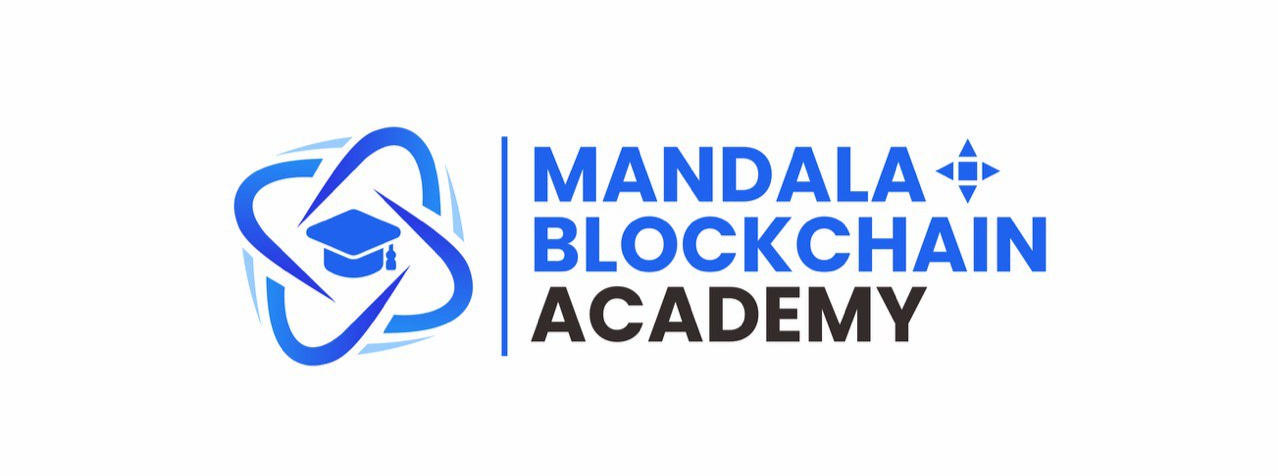
Global Expansion and Government Cooperation
Mandala Chain founder Mick Republik revealed that they are in advanced negotiations with another country outside of Indonesia, demonstrating the project’s global ambitions.
The secret to Mandala Chain's success lies in its strong local relationship network coupled with close cooperation with the government. This model enables it to quickly advance blockchain applications with policy support while meeting local needs.
Conclusion
With the Mandala Chain mainnet about to be officially launched in the second quarter of 2025, this innovative blockchain project dedicated to seamlessly connecting governments, enterprises and ordinary users is reaching a key development milestone. By then, Mandala Chain is not only expected to become the core driving force for Indonesia's digital economic transformation, but will also provide a replicable success model for large-scale blockchain applications around the world, truly transforming blockchain technology from a theoretical concept to a practical tool that serves hundreds of millions of users, and driving the Web3 ecosystem into a new era of prosperity.












